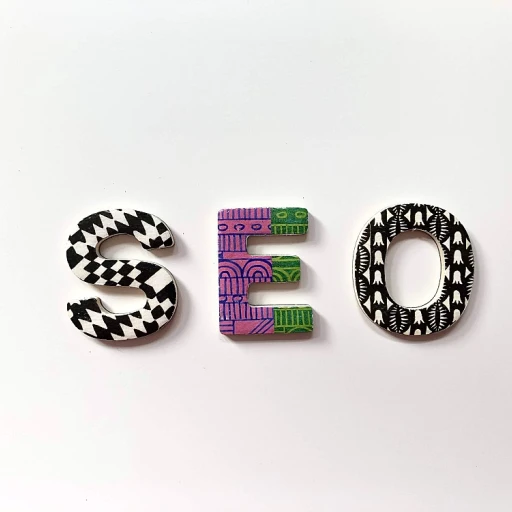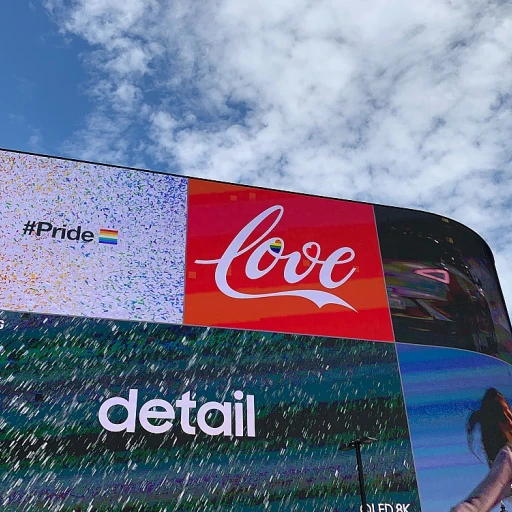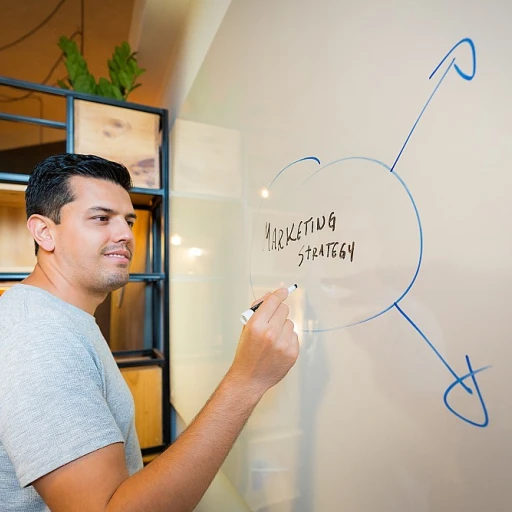Understanding Organic Marketing in the AI Era
Embracing the AI Shift in Organic Marketing
In today's digital landscape, understanding the intricacies of organic marketing has become essential for any business striving to expand its reach and engage its audience effectively. Organic marketing revolves around increasing the visibility of a brand without resorting to paid ads, often through the strategic use of social media and content marketing. However, as technology advances, integrating artificial intelligence into search engine optimization (SEO) emerges as a game-changer, impacting how brands approach their organic strategies.
As businesses continuously refine their marketing strategies to foster organic growth, AI introduces innovative ways to optimize content across search engines and digital platforms. This evolution signifies a pivotal shift where AI-driven tools can analyze audience behavior more adeptly, identify trending topics, and enhance the overall content strategy. By refining and tailoring content marketing efforts, businesses can reach their intended audience more effectively, driving organic traffic to their websites.
AI's role in transforming organic marketing also helps bridge gaps with traditional strategies while fostering long-term relationships with customers. As such, marketers need to find a balance between organic and paid strategies, leveraging AI to boost both online presence and engagement. Acquiring insights into this evolving trend could be the key to unlocking the full potential of digital marketing in the AI era.
For further insights into how businesses can leverage these trends to maximize value, explore the value of social media investment and its implications for organic growth strategies.
The Limitations of Organic Reach
Challenges with Solely Organic Approaches
Organic marketing is often celebrated for its authenticity and cost-effectiveness, but when companies choose to rely solely on organic strategies, they may hit several roadblocks. For one, the growth of online content has led to saturation, making organic content less visible. As competition heightens, brands often struggle to make their organic content stand out amidst numerous social media posts and website updates. As a result, their intended audience may not be reached, impacting both brand awareness and traffic. Moreover, changes in social media algorithms can significantly affect organic reach. Many platforms prioritize paid ads over organic posts, pushing businesses to explore both organic and paid marketing efforts to ensure they remain visible. Herein lies the importance of balancing organic content with a comprehensive paid marketing strategy, allowing brands to sustain engagement while achieving growth. Furthermore, organic growth is generally a long-term process. While building brand loyalty through consistent, valuable content is beneficial, it requires time and patience. Companies focused on immediate results may find solely organic methods insufficient and may need to supplement them with other strategies. To navigate these complexities, smart strategies can be employed. For more insights, consider exploring navigating the world of organic vs inorganic marketing in SEO to understand how a blend of methods might be the key to success.AI's Role in Transforming SEO
AI-Powered Automation in Content Optimization
The advent of artificial intelligence has brought about a significant transformation in search engine optimization, especially in the realm of content marketing. AI's capabilities enable businesses to refine their content strategies, making them more targeted and efficient. With AI, companies can analyze massive volumes of data to understand audience behavior and preferences, guiding the creation of organic content that resonates well with potential customers.
AI tools can suggest relevant keywords that boost organic reach, optimize existing website content, and even predict trends that can position a brand ahead of the competition. These insights help businesses attract more traffic from search engines without solely relying on organic methods. While organic strategies offer long-term growth, incorporating AI ensures that these strategies are fine-tuned in real time, adapting to changes in search algorithms and market demands.
Enhancing Targeting and Personalization
AI's role in transforming SEO extends to the realm of personalization. By leveraging AI, brands can deliver personalized content to different segments of their audience across various media platforms. This level of personalization not only improves user engagement but also enhances the brand's credibility and trustworthiness. AI-driven tools analyze user data to tailor digital marketing efforts, ensuring that both paid and organic marketing align seamlessly with audience expectations.
Streamlining Content Distribution and Analysis
Beyond content creation, AI plays a crucial role in content distribution. By determining the best times to publish content on different social media platforms, businesses can maximize organic reach and engagement. Additionally, AI analytics tools provide in-depth insights into content performance, helping marketers understand what strategies work best and where adjustments are needed.
As businesses seek growth and increased brand visibility, integrating AI into their marketing strategy becomes increasingly essential. For more insights on crafting the perfect tone for B2B content in this AI-driven landscape, visit this resource.
Balancing Organic and Paid Strategies
Integrating Paid Tactics with Organic Approaches
In the world of digital marketing, a singular focus on organic marketing strategies can limit a brand’s potential reach and growth. While organic content provides long-term benefits, such as building a genuine connection with your audience, relying solely on it may not yield the traffic and brand visibility your business desires. This is where combining organic strategies with paid marketing efforts offers a balanced approach to achieving your marketing goals.
By integrating paid advertising into your overall marketing strategy, you can bridge the gaps left by organic reach. Paid ads provide a significant boost to your website traffic by promoting your content on various media platforms and enhancing the discoverability of your products or services. This dual approach caters to different segments of your customer base, enabling you to capture both immediate attention and nurture long-term relationships.
Consider using paid marketing channels to amplify the exposure of your organic content. When you strategically place ads or promote posts on social media, you not only increase the visibility of your content but also convert this attention into sustainable brand growth. With the right balance, your organic and paid initiatives can work together to expand your audience reach and deepen customer engagement.
Furthermore, leveraging paid strategies allows for better measurement of your marketing efforts' effectiveness. Unlike solely organic tactics, paid media offers more precise targeting and analytics, helping you understand what resonates with your audience across different platforms.
Ultimately, the synergy between organic and paid marketing can lead to a more dynamic and successful marketing strategy. As your business evolves, this blend offers flexibility and adaptability, ensuring you’re effectively meeting your goals in both the short and long term. By balancing these strategies, you position your brand to not only survive but thrive in the competitive digital landscape.
Case Studies: Success Beyond Organic
Achievements Through Combined Approaches
In today's dynamic digital marketing landscape, businesses leveraging both organic and paid strategies often experience enhanced success compared to those relying solely on organic marketing. By strategically combining these approaches, companies can optimize their reach, drive targeted traffic, and solidify their brand presence across various media platforms. Consider a business integrating organic strategies with paid advertising. This mix allows it to attract a loyal audience while simultaneously reaching new potential customers. Organic content fosters a long-term relationship with users by offering valuable insights and engaging experiences. On the other hand, paid ads ensure the brand gains immediate visibility, especially in competitive markets. Businesses also benefit from using social media platforms as a hybrid approach. Organic growth through organic content marketing helps build credibility and fosters genuine engagement. When amplified with paid ads, the brand can capitalize on opportunities to reach wider audiences in a relatively short time, enhancing brand recognition and growth. For example, a brand might use organic SEO efforts to establish its presence in search engines over time while running paid campaigns periodically to target specific demographics or season-specific promotions. This balance ensures a steady influx of new traffic while nurturing existing customer relationships. Additionally, data-driven insights from paid advertising can inform and refine an organic content strategy. Tracking ad performance allows businesses to tailor their content strategies to what resonates most with their audience, optimizing results. In the evolving landscape of digital marketing, adopting a balanced strategy that harnesses both organic and paid efforts is key to sustainable growth and success.Future Trends in AI and SEO
Anticipating the Next Wave of AI-driven SEO Enhancements
The future of SEO is poised to be significantly shaped by the advancements in artificial intelligence. As search engines continue to evolve, they are becoming more adept at understanding semantic content, context, and user intent. This evolution requires businesses to adjust their marketing strategies accordingly. The integration of AI into SEO tools offers the potential to refine audience targeting, optimize content, and enhance user experiences over time.
As discussed earlier, one of the major shifts AI brings to the forefront is the ability to process vast amounts of data efficiently. This capacity enables digital marketing platforms to deliver more personalized content to users, thereby increasing engagement and extending organic reach. Business websites can leverage AI to predict what content will resonate most with their audiences, thus ensuring that organic content remains relevant and engaging.
In tandem with organic strategies, businesses are expected to continue blending paid ads into their marketing strategies. The synergy of AI and paid marketing can lead to refined campaign targeting and foster organic growth through sophisticated data analysis. This approach underscores the importance of adopting a balanced marketing strategy, where AI serves as a catalyst, driving traffic from both organic and paid sources.
Emerging trends suggest that the influence of AI will further amplify the reach of social media by enabling better analysis of audience behavior. Businesses will be well-advised to harness these enhancements to refine their brand's presence across various media platforms. Ultimately, the key to thriving in the digital landscape will lie in adopting a comprehensive approach that leverages AI, not just for short-term gains, but for sustained growth and customer retention.













